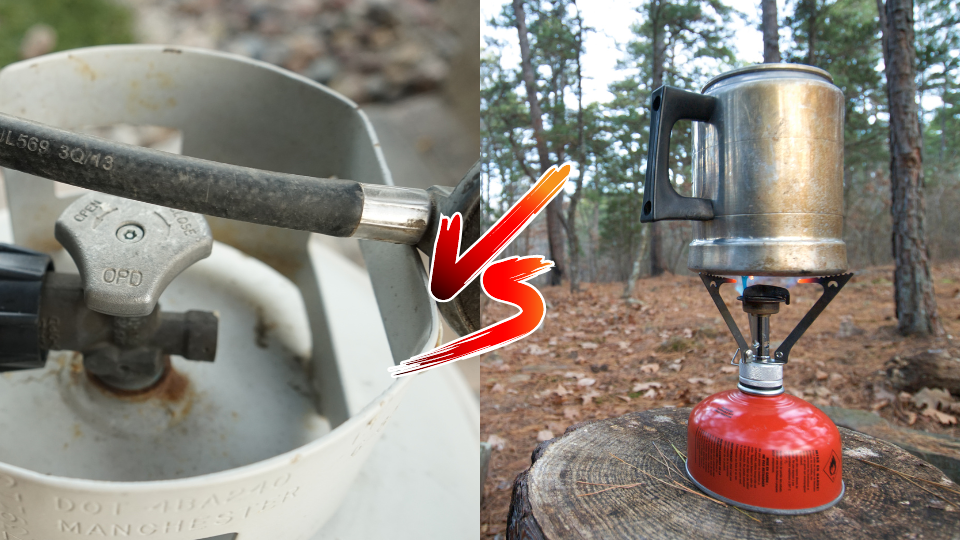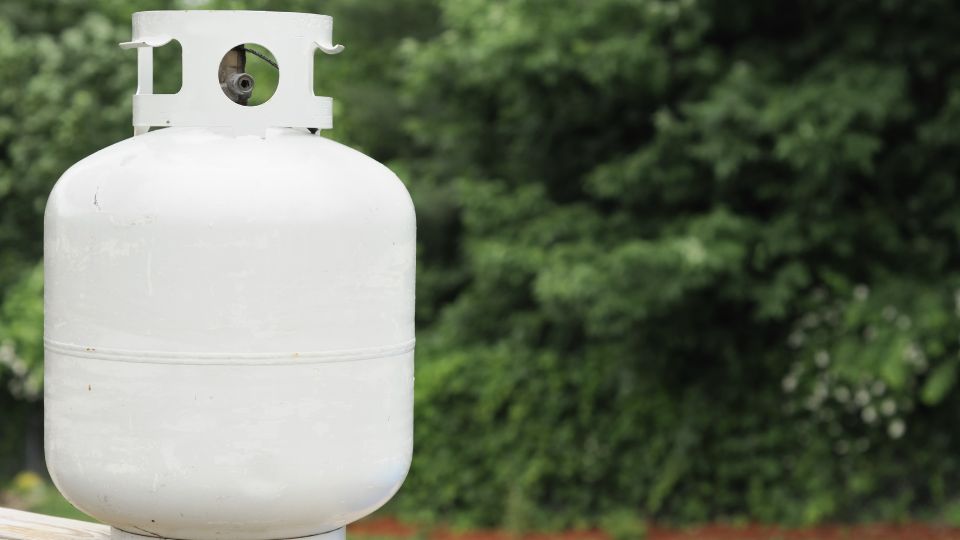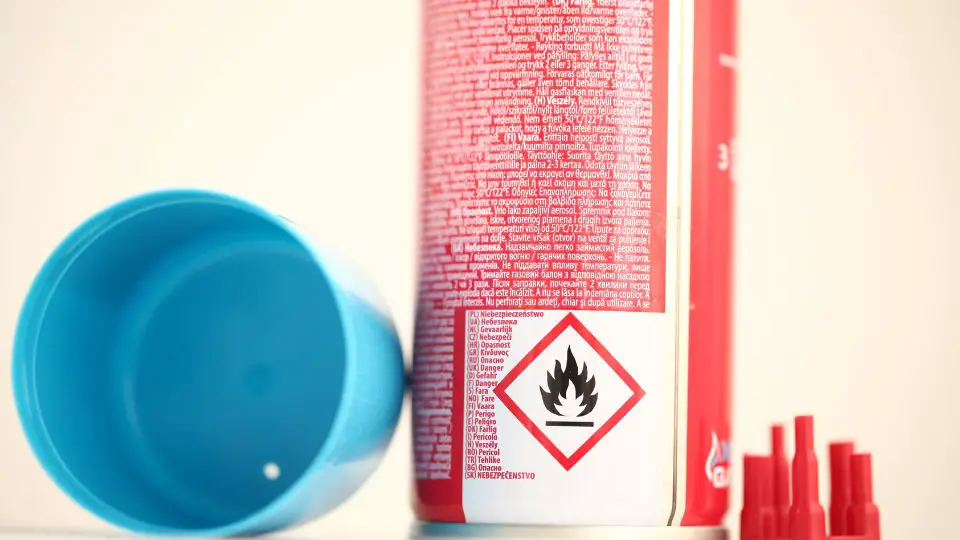Propane vs Butane Camp Stove: Which Is Right for Me?

When it comes to camping, having the right equipment can make or break your trip. One essential piece of gear is a camp stove, and there are many different types to choose from. But when it comes to propane vs butane, which one is right for you?
Propane camp stoves typically run on a refillable fuel tank and are great for longer trips where you won’t have access to a gas station. They are also more powerful than butane stoves and can generate higher temperatures, making them ideal for large groups or for cooking meals that require more heat.
Butane camp stoves are more lightweight and portable than propane, making them perfect for short trips or for hikers who need to cut down on weight. They also don’t require a tank and can be refilled with small canisters, so you don’t have to worry about running out of fuel.
So, depending on your needs, either a propane or butane camp stove can be a perfect choice. Let’s explore further to learn more about the benefits of each and how they can help make your camping trips safer and more enjoyable.
Quick Links
What are the Differences Between Propane and Butane Camp Stoves?
When it comes to propane vs butane camp stoves, there are a few key differences that can influence which one is right for you. First, propane is a flammable gas that is stored in a pressurized container and connected to the stove using a hose. Butane, on the other hand, is a liquefied petroleum gas (LPG) that is usually stored in a canister. This makes it more portable than propane, but it can also be more expensive since it needs to be replaced quite a bit.
Another key difference is the heat output. Propane camp stoves can generate much hotter temperatures than butane, making them ideal for larger groups or for cooking meals that require more heat. Butane stoves, while not as hot, can be more convenient for short trips, quick meals like hot dogs, or for hikers who need to cut down on weight.
Finally, when it comes to boil times, propane stoves tend to be faster than butane, although there is usually very little difference in performance between the two. Now that you know the basics of propane vs butane camp stoves, let’s take a closer look at the benefits of each.
PS: If you want to learn more about propane, I suggest learning from the propane master, Hank Hill of Strickland Propane 😜
Benefits of Propane & Butane Camp Stoves
Benefits of Propane Camp Stove

The main advantage of propane camp stoves is their ability to generate higher temperatures, making them ideal for larger groups or for cooking meals that require more heat. Propane is also easier to store, since it doesn’t need to be replaced as often as butane. Additionally, it is generally more powerful than butane, so it can be used to boil water or cook food faster.
Finally, propane stoves are typically more affordable than butane stoves, making them a great choice for those on a budget.
Benefits of Butane Camp Stove

The main advantage of butane camp stoves is their portability. Butane is stored in a canister, which makes it much lighter and easier to carry than propane. This makes it perfect for those who are looking for a quick, easy way to cook on the go.
Butane stoves also tend to be more reliable than propane stoves, since they don’t require a hose to connect the fuel source – but that’s not saying that propane stoves are UNRELIABLE.
Finally, butane stoves are usually more fuel efficient than propane, so you won’t have to worry about running out of fuel as quickly. But as I said, you do have to worry about replacing it.
Which Is Safer: Butane or Propane Camp Stove?
When it comes to safety, both butane and propane camp stoves have their advantages and disadvantages. Generally, butane is considered to be the safer option as it is less combustible than propane. Butane is also easier to store and transport, as it is not pressurized like propane.
Since butane is less combustible, it is also less likely to cause a fire or explosion. Butane stoves can also be used in colder climates, as they will still burn and provide heat even at lower temperatures. On the other hand, propane is usually the more popular option for camp stoves as it provides a hotter, more consistent flame than butane. Propane is also more readily available than butane and is typically less expensive.
However, propane is more combustible than butane and should be handled with caution. Additionally, propane will not burn efficiently in colder climates, making butane the more viable option in those conditions.
Overall, both butane and propane camp stoves have their own pros and cons when it comes to safety. It is important to consider the environment and weather conditions in which you will be using your camp stove, and to take all necessary safety precautions when using either type of fuel.
What Factors Should I Consider When Choosing Between Propane and Butane Camp Stoves?
When deciding between a propane or butane camp stove, there are several factors to consider; here’s a quick list:
Climate
The most important factor to consider is the environment in which you will be using the stove and the temperature. If you will be using the stove in a colder climate, then butane is the better option, as it will still burn at lower temperatures. If you are camping in a warmer climate, then propane is typically the better option, as it will produce a hotter, more consistent flame.
Size
It is also important to consider the size of the camp stove. Butane stoves tend to be smaller and more lightweight than propane, making them ideal for backpacking and camping trips. Propane camp stoves are typically larger and heavier, making them better suited for larger camping trips.
Safety
Safety is another important factor to consider when choosing between propane and butane camp stoves. Since butane is less combustible than propane, it is considered to be the safer option. It is important to follow all safety precautions when using either type of fuel.
Fuel Efficiency
Finally, fuel efficiency should also be taken into account when selecting a camp stove. Butane stoves are usually more efficient than propane stoves, as butane canisters are typically smaller and last longer. Propane, on the other hand, is more readily available and can be purchased in larger canisters, making it easier to transport and store.
Conclusion
In the end, the choice between a propane or butane camp stove will depend on your individual needs and preferences. The important thing to remember is that both types of stoves are safe and effective as long as you take the necessary safety precautions.
Regardless of which type of stove you choose, it is important to understand the different features and benefits of each, in order to make an informed decision – and hopefully this article was able to help make that decision.






